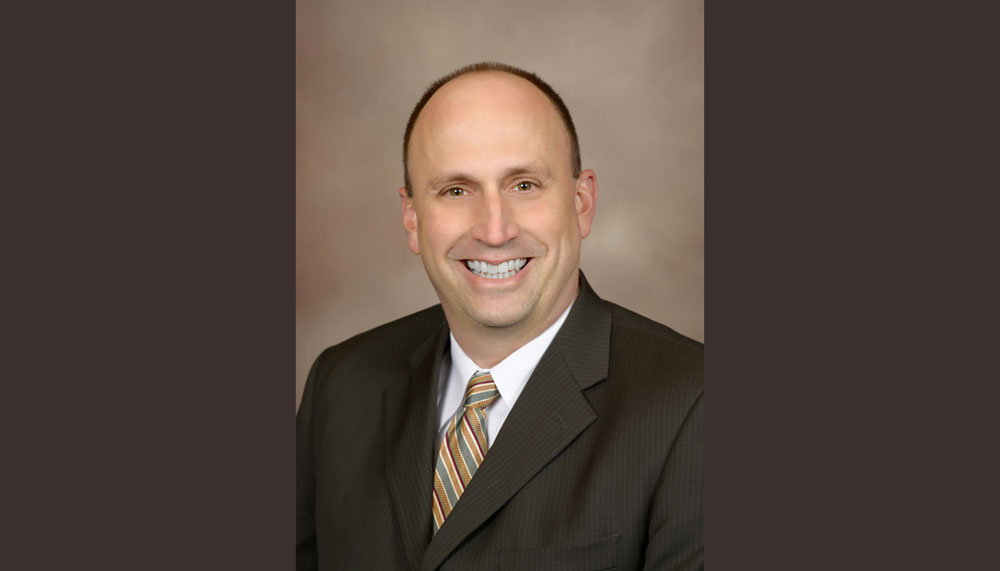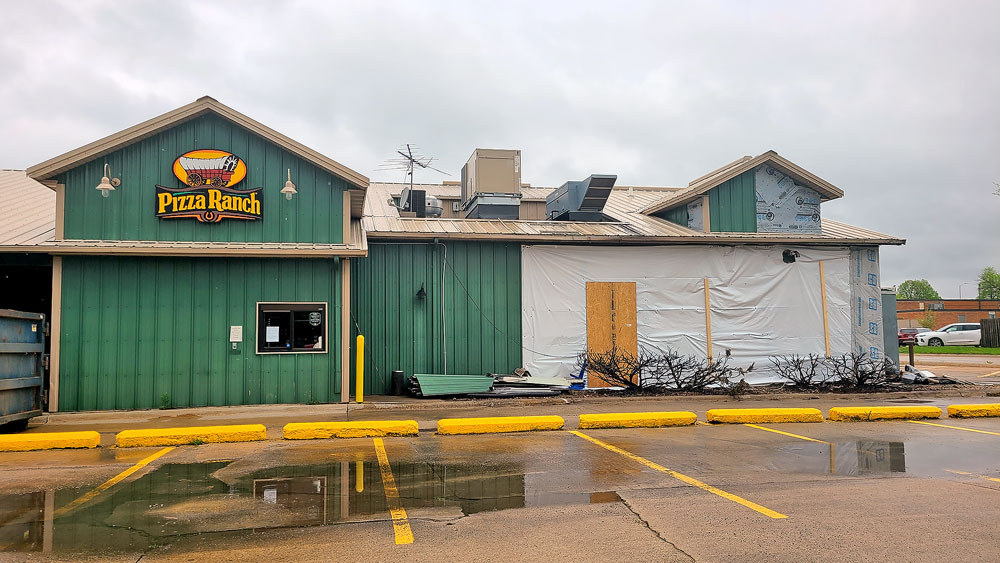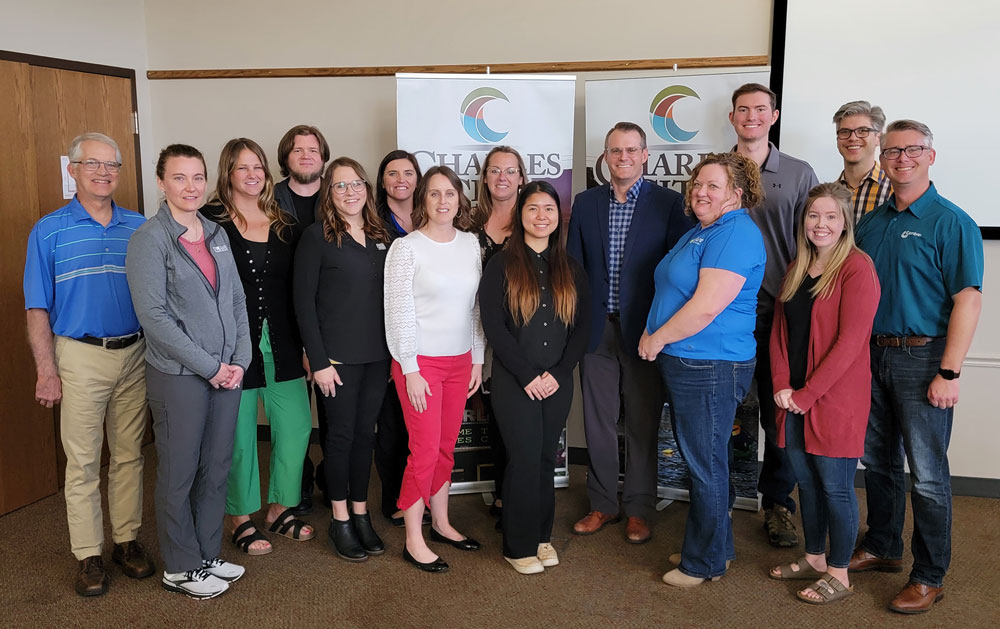Floyd County begins discussions on supervisor districts, also renewing local option sales tax
By Bob Steenson, bsteenson@charlescitypress.com
Floyd County supervisors began discussions Monday morning on what could be a complicated path to dividing the county into three supervisor districts, as required by the results of a special election held last week.
Entangling and likely slowing the districting process is the 2020 Census and how it might change political lines in the state and the county.
Voters overwhelmingly approved “Plan Three” in a special election last Tuesday, requiring the county to be divided into three districts of approximately equal population, with one supervisor elected from each district.
Supervisor candidates will have to live in the district they are running to represent, and only people living in each district will be able to vote for the supervisor for that district.
Supervisor Chair Linda Tjaden began the discussion saying she would like to make a statement about the election.
Talking about the group that called for the special election, the Coalition for Better County Government, Tjaden said the perception by some in the group that Charles City voters dominate county elections was proved wrong in the special election.
She said the group was able to get the voters to pass its recommended Plan Three by doing what the three current supervisors had done when they were running to get elected.
“What they did is what we all three have done. We campaign, we get the message out, we talk to people, we put signage out. And you do that when you run a campaign,” Tjaden said.
If the group had found good candidates and campaigned for them like members campaigned for the special election, they could have had representatives elected from anywhere in the county without districts, she said.
“But at this point in time, the people have spoken and we’re doing redistricting,” Tjaden said, calling the idea that now people will only be able to decide on a single supervisor for their own district “unfortunate.”
Supervisor Roy Schwickerath said, “This is what the people voted for, of the ones that voted, and we need to keep moving forward. We need to do our jobs.”
“It is what it is,” said Supervisor Doug Kamm.
County Auditor Gloria Carr, who is also county commissioner of elections, started walking the board through the process of creating districts.
One part of the Iowa Code calls for the redistricting plan to be completed by Nov. 1, but another says the deadline is Feb. 15.
Carr said she called the Iowa Secretary of State Office, and was advised that the county needs to seek an Iowa Attorney General Office opinion on which date should be used.
She said Assistant Floyd County Attorney Randy Tilton would talk with a contact he has in the Attorney General Office.
The problem this year, Carr said, is that the 2020 U.S. Census results are way behind in being released because of COVID.
Even after the population numbers are released, expected this month, the state has to set new lines for Iowa legislative districts before the county supervisor lines can be decided.
“You can’t split a Senate line, for example, with a supervisor district,” she said.
Carr said her understanding of the Iowa Code after talking with the Iowa Secretary of State Office is that the state Legislative Services Agency will determine supervisor districts, and a local temporary redistricting commission will draw the precinct lines within those districts.
“It used to be, I don’t know how long ago, that that commission would establish supervisor districts,” Carr said. “But because of problems with favoritism, trying to draw lines so a supervisor gets in a certain district that they want to be in, or things like that, that for Plan Three changed to the Legislative Services Agency determines those supervisor districts.”
Carr said she was advised by the Secretary of State Office that there is little likelihood the state will be done with redistricting congressional and legislative boundaries in time for supervisor districts to be completed by Nov. 1 2021.
There is some urgency, Carr pointed out. The new supervisor districts need to be in place for the general election Nov. 9, 2022. But that also means they need to be in place for the March candidate filing deadline so candidates know what district they are running for, and for the June primary election.
The board also discussed selecting the members of the county’s temporary redistricting commission. Supervisors can decide to make the commission three, five or seven members.
The makeup of the commission is controlled by political party, according to state law. Since Tjaden and Kamm, both Republicans, represent the majority of the board, they get to pick a majority of the commission members — two members on a three-member commission, three members on a five-member commission, four members on a seven-member commission.
Schwickerath, the lone Democrat, will get to pick the remaining member or members.
Carr said the agenda for today’s (Tuesday’s) regular meeting would allow them to set the size of the commission if they want to, but the supervisors agreed there was no urgency on that decision, although all three said they had been considering possible members to appoint.
Carr said Assistant County Attorney Tilton had cautioned to keep aware of public meeting requirements. If Tjaden and Kamm were to get together to discuss their appointments, for example, that would be a quorum of the three-person Board of Supervisors and require a public meeting.
Carr said Tilton said it would probably be OK for them to exchange lists of potential nominees, but any decisions on appointments should be made during a public meeting of the board.
Any members of the temporary redistricting commission should be comfortable working on a computer, Carr said, because the population numbers and modeling program for drawing the lines are all computer based.
Also at the supervisors workshop meeting monday, the board discussed an upcoming referendum asking county voters to renew a local option sales tax for the unincorporated areas of the county.
The item is on the agenda for Tuesday’s regular meeting to pass a resolution setting a special election for Nov. 2. The current penny sale tax expires after 10 years, on December 31, 2022.
The resolution would ask voters to vote yes or no on this public measure:
“For the unincorporated areas of Floyd County, Iowa: Shall a local option sales and service tax be imposed in the unincorporated areas of Floyd County at the rate of 1% to be effective from January 1, 2023 until December 31, 2032? Revenues from the tax are to be allocated as follows: 100% allocated for Secondary Road rock, bridges and culvert repair and/or replacement and construction projects.”
Carr the said the sales tax currently adds about $700,000 a year that is used for county roads and transportation infrastructure.
Mark Kuhn, a former supervisor, was at the meeting Tuesday, saying he supported renewing the sales tax, but wondered if any consideration was being given to using some of the proceeds for property tax relief.
Supervisor Schwickerath said using the money for roads was essentially the same as property tax relief, because if that money wasn’t available for that it would have to come from some other source, such as property taxes.
“Or cut services,” Kamm said.









Social Share